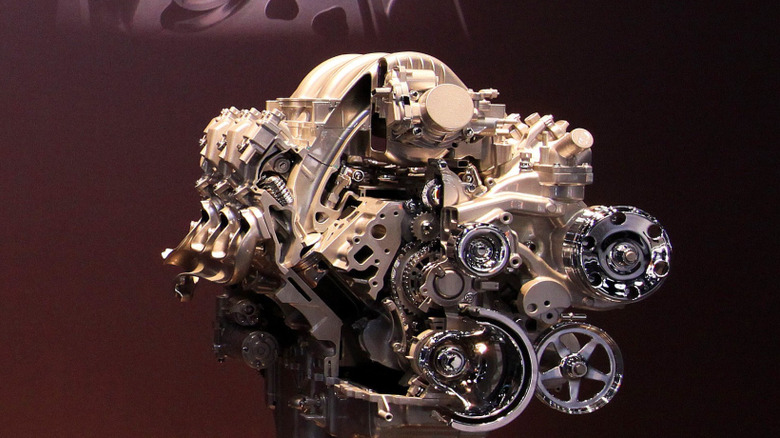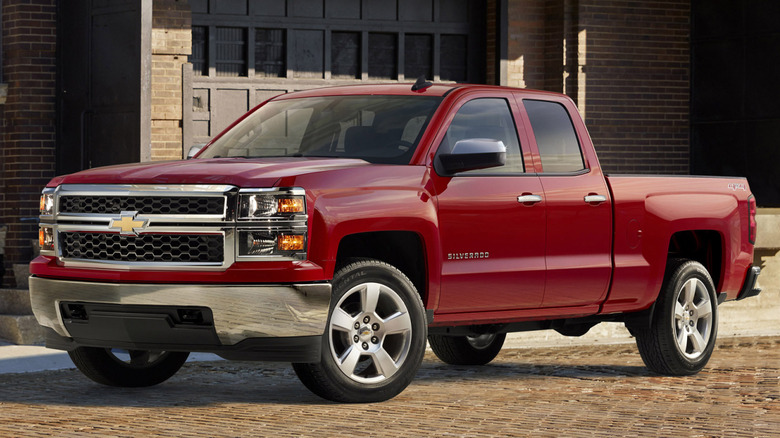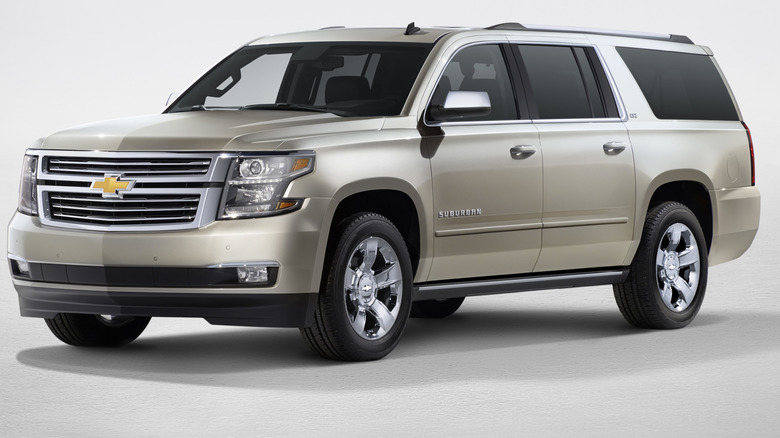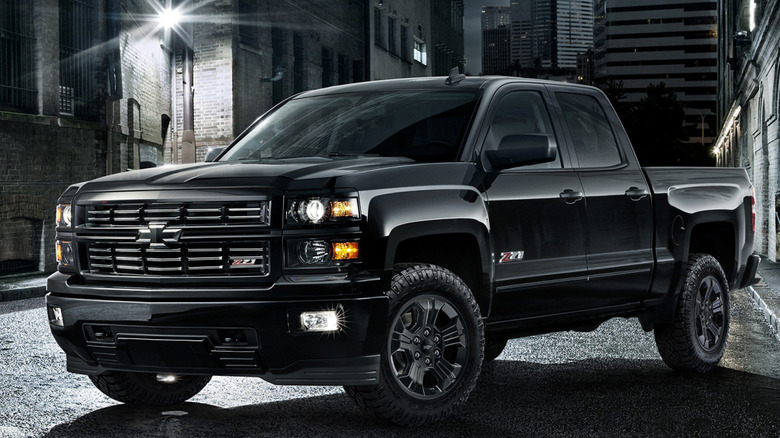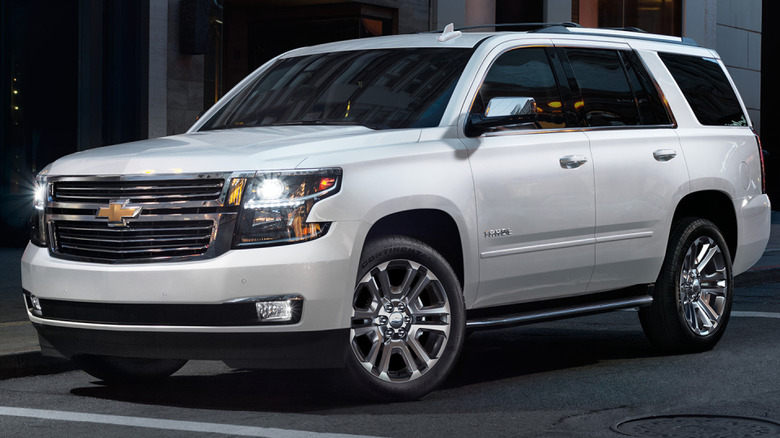Common Problems With GM's Ecotec3 L83 Engine (According To Owners)
The Ecotec3 L83 is a light truck version of the fifth-generation small block Chevy engine. It is found in the 2014-2019 Silverado 1500 and GMC Sierra 1500 pick-ups as well as the 2015-2019 Suburban, Tahoe and GMC Yukon and Yukon XL. It's a reliable engine, and iSeeCars consistently ranks the Silverado, Suburban, and Tahoe as the American made cars most likely to last more than 250,000 miles. However, Consumer Reports rates these vehicles, especially the 2014 and 2015 models, as being less reliable than average. What's up?
First, most of the complaints are not connected to the engine. Owners report more AC problems than anything else. The L83 crops up regularly in complaints, though, and there are three sets of problems that owners mention with some frequency. Some issues are associated with the direct injection system, others are connected to GM's decades-long endeavor to make a V8 function as a V4, and then there are a variety of component quality issues.
Direct Injection problems
When GM designed the Gen5 small block, one radical departure from its predecessors was the use of direct injection, which shot the fuel into the combustion chamber and not the intake port. According to Chevrolet, "The ability to more precisely control combustion also enables the new engines to run with a higher compression ratio, one of the best ways to simultaneously increase power and efficiency." Direct injection can lead to problems later, though, because the engine needs proper fuel selection and maintenance to prevent fuel system clogs and carbon buildup.
Other issues are connected to the direct injection system itself. Owners caution that the high-pressure fuel pump can malfunction, and the injectors also stop working with age. Sometimes it is just a single injector, but one report from Comanche, Texas sent to the National Highway Traffic Safety Board says that, "the vehicle was taken to the dealer who diagnosed that six of the eight fuel injectors had failed and needed to be replaced. The contact stated that the failure had been reoccurring." Since this is how the engine is designed, owners should be prepared to maintain the intake ports and replace the high-pressure fuel pump and injectors as soon as they fail.
Active Fuel Management problems
Since the 1980s, General Motors has been chasing the dream of an 8-cylinder engine that only uses specific sets of cylinders under certain driving conditions. Early attempts such as Cadillac's V8-6-4 resulted in some of the worst automotive engines ever. The Ecotec3's predecessor, the 2007-2014 Vortec 5300, was known for problems with its cylinder shut down system. GM's attempt in the L83, called Active Fuel Management (AFM), was a great improvement, but it still created problems in the engine bay. The worst issue commonly reported is that the lifters fail in motors with AFM working. Oil consumption also rises on these engines.
Even when AFM is working properly, the engine noise draws complaints. When running as a V4, it could even cause headaches and nausea! It is no wonder, then, that a cottage industry of aftermarket AFM canceling modules has sprung up.
Component quality
Sometimes a design decision leads to a maintenance issue, such as GM choosing direct injection for the L83. At other times, it's the quality of the parts used that creates problems, and the L83 has seen its share of these as well. In 2014, GM sent a Technical Service Bulletin to the NHTSA regarding bent piston squirters in L83 engines. If the connecting rod hit the squirter, there would be a high pitched noise. If the squirter 'squealed' and the knock sensor noticed it, the on-board computer connected to the sensor would retard the spark, resulting in both the engine and transmission operating poorly.
However, customer complaints about the quality of the parts used in the L83 took another turn in 2021, when a class action lawsuit, Harrison et al v. General Motors, LLC, was filed on behalf of forty-two owners of GM V8-powered vehicles, including the L83. The plaintiffs claim that the engines "...suffer from latent design, workmanship, and/or manufacturing defects in the Class Vehicles' engines' valve train systems...". Thus far, the court in Harrison et al v. General Motors ordered 20 of the plaintiffs to enter into arbitration with GM. The remaining decisions are still pending.
The verdict(s)
GM sold 317,661 Suburbans and 584,189 Tahoes over 2015-2020, alongside L83-powered Silveradoes and Yukons. Despite the reported issues, plenty of L83-powered vehicles are still on the road and sold on the used car market today.
The AFM and direct injection systems worry some owners and would-be purchasers. These are all known issues now, and owners on Chevrolet forums actively share work-arounds and required maintenance tips. With almost a million L83 engines on the road at one time, Chevrolet would have completely overhauled the small block if the design had been flawed.
Active Fuel Management morphed into the even more sophisticated Dynamic Fuel Management in 2019 on the L84 engine. With the L84, GM finally realized its dream of reducing cylinder use, but the rest of the engine is still the same as the L83. If you are considering a vehicle with one of these engines, your mileage may vary but if you do have a problem, chances are that someone, somewhere has gone through the same thing and the solution already exists.
